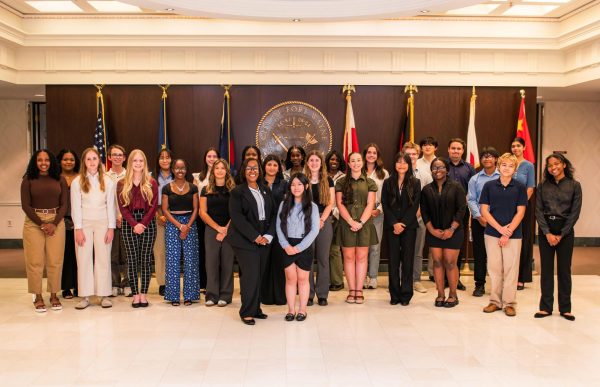Community debates summer break
Summer break. It’s what all students and teachers look forward to throughout the school year.
Although there are other types of school schedules, the most common by far uses a long summer vacation.
But how did this come to be?
In the 1800s, school was in session almost all year round, but a lot of the older kids had to miss classes during the summer to help out on the farm. The country wanted to standardize schools more, and one way they decided to do that was by cutting down the length of the school year in the summer.
Although most kids don’t have a farm to tend to anymore, the summer break system is still in place and seems to maintain student and teacher support.
A poll of a couple of hundred students at Carroll shows that 83% of people would prefer to keep the current school schedule over switching to a more year-round calendar system.
“I prefer the schedule we have now because it allows students an extended break from school where they don’t have to worry about anything related to school,” said sophomore Ciara Palermo.
A lot of students relate to this, as they have worries that in switching to a shorter break schedule, teachers will only assign more work.
“When I am on any breaks such as Thanksgiving break or spring break, there’s always one teacher that gives an assignment because they think we will have longer to complete it,” said Palermo.
Although many teens have concerns over year-long schooling, others feel like it would benefit their learning.
“I prefer a year-long schedule because during our long summer break we forget a whole ton and then it’s hard to get back into the routine,” said sophomore Taylor Richards.
Another benefit of a year-long education is having longer, periodic breaks to space out time spent at school.
“I would prefer to have more breaks during the year so that we’re not always on the run with school,” said Richards.
Teachers are affected by school changes just as much as students, but most can see the benefits and drawbacks of both sides.
“I enjoy having the long summer to spend time with my family, relax, and enjoy the outdoors,” said English teacher Mrs. Katie Kelly. “However, the time can feel long at times, and I enjoy having a routine which summer definitely breaks those routines.”
Another positive to year-long schooling is that there can be a longer winter break which would most likely help with preventing snow days.
“Winter weather is unpredictable and oftentimes bad at the start of the 2nd semester,” said Mrs. Kelly. “Having a longer winter break could curb some of the potential weather-based cancellations.”
While there are many pros to a year-round school schedule, doing so would require a lot of planning.
Summer school takes up both June and July, so having regular school during those months would require a change in when credit recovery summer classes would take place.
The summer is also when the custodial staff undergoes a thorough clean of the building, and they most likely wouldn’t be able to finish with a shorter summer vacation.
Year-round school can bring benefits such as spaced-out breaks and consistent routines, but it can also eliminate the summer relaxation that so many students and teachers look forward to.
Regardless, the district doesn’t seem to be making the switch anytime soon.

Gracie Rose is a senior who has been attending NACS schools since kindergarten. At 17, this is her third year working on The Charger Online and her second...






